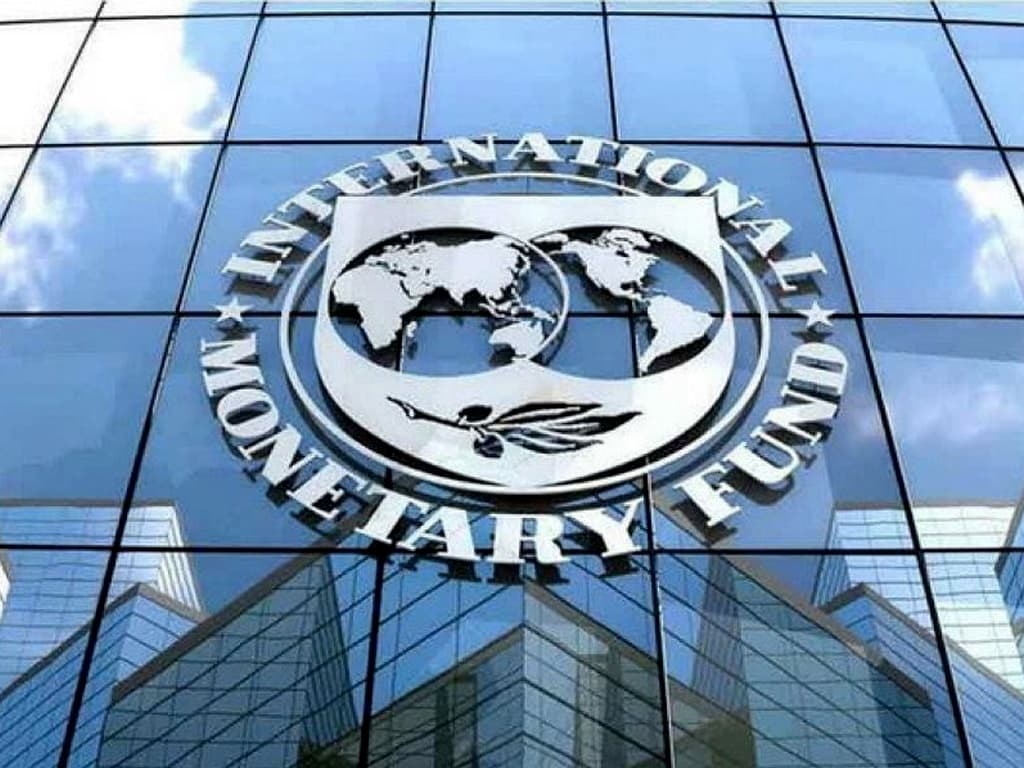Live Classes

Understanding IMF bailouts
Gs paper 2: International Relation
The International Monetary Fund (IMF) last week confirmed a $3 billion bailout plan for Sri Lanka’s struggling economy. IMF officials are also in negotiations with Pakistan for a $1.1 billion bailout plan as the country faces a severe economic crisis marked by a falling currency and price rise.
Why do nations seek an IMF bailout?
Countries seek help from the IMF usually when their economies face a major macroeconomic risk, mostly in the form of a currency crisis. For instance in the case of Sri Lanka and Pakistan, both countries have witnessed domestic prices rise rapidly and the exchange value of their currencies drop steeply against the U.S. dollar. Such currency crises are generally the result of gross mismanagement of the nation’s currency by its central bank, often under the covert influence of the ruling government. Central banks may be forced by governments to create fresh money out of thin air to fund populist spending. Such spending eventually results in a rapid rise of the overall money supply, which in turn causes prices to rise across the economy and the exchange value of the currency to drop.
How does currency devaluation and price rise affect an economy?
A rapid, unpredictable fall in the value of a currency can destroy confidence in said currency and affect economic activity as people may turn hesitant to accept the currency in exchange for goods and services. Foreigners may also be unwilling to invest in an economy where the value of its currency gyrates in an unpredictable manner. In such a scenario, many countries are forced to seek help from the IMF to meet their external debt and other obligations, to purchase essential imports, and also to prop up the exchange value of their currencies.
Meanwhile, a country’s domestic economic policies can also have an adverse impact on its currency’s exchange rate and foreign exchange reserves. For example, economic policy that imperils productivity can affect a country’s ability to attract the necessary foreign exchange for its survival. Bad luck can also contribute to a crisis. In the case of Sri Lanka, a decrease in foreign tourists visiting the country led to a steep fall in the flow of U.S. dollars into the nation.
How does the IMF help countries?
The IMF basically lends money, often in the form of special drawing rights (SDRs), to troubled economies that seek the lender’s assistance. SDRs simply represent a basket of five currencies, namely the U.S. dollar, the euro, the Chinese yuan, the Japanese yen, and the British pound. The IMF carries out its lending to troubled economies through a number of lending programs such as the extended credit facility, the flexible credit line, the standby agreement, etc. Countries receiving the bailout can use the SDRs for various purposes depending on their individual circumstances. Currently, both Sri Lanka and Pakistan are in urgent need for U.S. dollars to import essential items and also to pay their foreign debt. So any money that they receive from the IMF is likely to go towards addressing these urgent issues.
What is the International Monetary Fund?
The IMF was set up in 1945 out of the Bretton Woods conference. The primary goal of the IMF back then was to bring about international economic coordination to prevent competing currency devaluation by countries trying to promote their own exports. Eventually, the IMF evolved to be a lender of last resort to governments of countries that had to deal with severe currency crises.
Are there any strings attached to an IMF bailout?
The IMF usually imposes conditions on countries before it lends any money to them. For example, a country may have to agree to implement certain structural reforms as a condition to receive IMF loans. The IMF’s conditional lending has been controversial as many believe that these reforms are too tough on the public. Some have also accused the IMF’s lending decisions, which are taken by officials appointed by the governments of various countries, to be influenced by international politics. Supporters of the IMF’s lending policies, however, have argued that conditions are essential for the success of IMF lending.
For one, countries that seek an IMF bailout are usually in a crisis due to certain policies adopted by their governments that turned out to be inimical to economic growth and stability. It may thus not make sense for the IMF to throw money at a country when the policies that caused its crisis remain untouched. So, for instance, the IMF may demand a country affected by high price inflation to ensure the independence of its central bank. Corruption is another issue. The IMF lending to troubled economies, may turn out to be a wasted effort because these economies have poor institutions and suffer from high corruption. In other words, these countries are most likely to squander the bailout money
International Monetary Fund (IMF)
India and the IMF
Functions
Regulatory functions: IMF functions as a regulatory body and as per the rules of the Articles of Agreement, it also focuses on administering a code of conduct for exchange rate policies and restrictions on payments for current account transactions.
Financial functions: IMF provides financial support and resources to the member countries to meet short term and medium term Balance of Payments (BOP) disequilibrium.
Consultative functions: IMF is a center for international cooperation for the member countries. It also acts as a source of counsel and technical assistance.
Download pdf to Read More